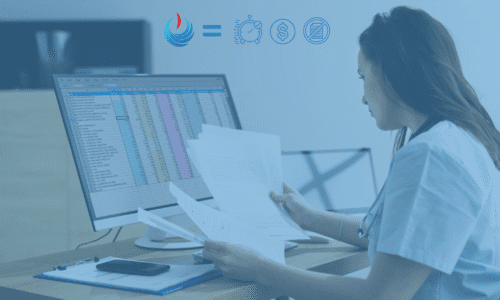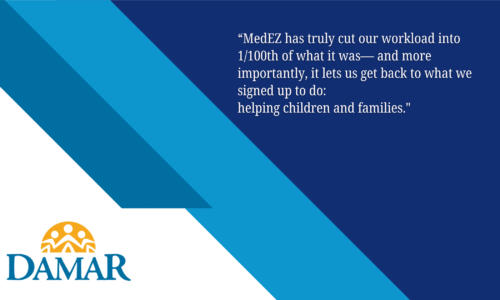In the multi-disciplinary field of behavioral health, health information technology can enable better delivery of care to patients. Using the right electronic health record (EHR) system helps behavioral health and substance abuse providers not only save time and money throughout the practice, but also help save lives. Comprehensive EHRs improve communication between providers, streamline administrative processes, minimize paperwork, monitor opioid and other medication use, and alert providers to patient risk factors.
Benefits to Practitioners / Practices
- Reduced paper records: Migrating to EHR reduces the amount of paper records that practices need to secure and store. Patient records in an EHR system are more secure than conventional paper charts and are protected against theft or destruction from fire or flooding.
- Streamlined billing and admissions: Practitioners can reduce delays and errors often encountered in traditional paper-based invoicing by implementing an integrated package that links records of a patient’s treatment directly to a claims billing module. Inclusion of practice management software facilitates a smoother admissions process.
- Increased accuracy of information: With EHRs, there are no handwritten notes to transcribe, which reduces the chances of errors in the patient record from illegible handwritten orders and notes. Duplicate data entry by multiple staff also is minimized, as are mistakes.
Benefits to Both Patients and Providers
- Improved information sharing: EHRs allow practitioners to share information among service providers about a patient’s diagnosis and treatment plan, which improves service delivery and efficiency. Additionally web-based or cloud-hosted EHRs are accessible from any physical location with an internet connection, permitting instant access to a patient’s records, which can improve crisis response during a life-threatening emergency such as a suicide threat.
- Better medication management: Providers not only can use an EHR to electronically prescribe medication, they can also track patients’ medications from all providers and check for potential interactions, prevent adverse reactions and help identify possible prescription-seeking practices by patients. Access to a comprehensive medication history can help adjust dosages. EHRs can monitor patient adherence to medication plans. An EHR system also can monitor patient use of opioids as well as alert providers to potential risk factors that could lead to dependency and abuse.
- Fewer duplicate tests: With an EHR system, providers can more readily view past test results and not order tests already performed by another provider. This reduces costs and helps create better treatment plans.
- Less time on paperwork, more time with patients: Care teams can use an EHR system to automate completion of routine forms and orders, thus reducing the amount of clinician time spent completing paperwork and freeing up time to spend with the patient.
Benefits to Patients
- Easier coordination of care: EHRs reduce the burden on patients to share paper health records with multiple providers and thus allow for easier sharing of health information among providers and practitioners. EHRs provide efficient access to patients’ up-to-date health data, which makes it easier to coordinate care between multiple providers. Additionally, if patients switch insurance companies, an EHR can more easily and quickly transfer medical history to a new provider, aiding in decisions about the patient’s care.
Benefits of MedEZ
When evaluating vendors and products, consider MedEZ and its specialized, integrated EHR and billing suite for both inpatient and outpatient behavioral health centers and substance abuse rehabilitation programs. Designed for flexibility and customization, MedEZ’s suite features:
- Automated generation of sign-in sheets and attendance checks
- User-defined security levels to limit access
- HIPAA-compliant patient records
- E-prescribing
- Creation of paper or electronic claims for billing
Committed to making sure the system works as expected and your staff are comfortable using the system to its full potential, MedEZ technical support staff are easily reached with questions, and future modifications can be made by in-house programmers as your practice evolves.
Sources:
- Substance Abuse and Mental Health Services Administration, “Health IT for Behavioral Health Professionals“
- Physicians Practice, “How EHRs Can Help Prevent Opioid Addiction“



